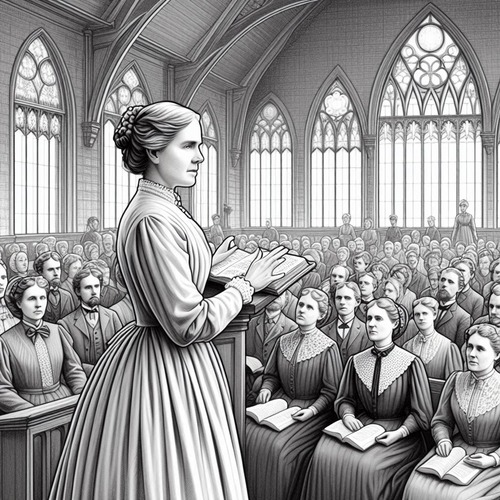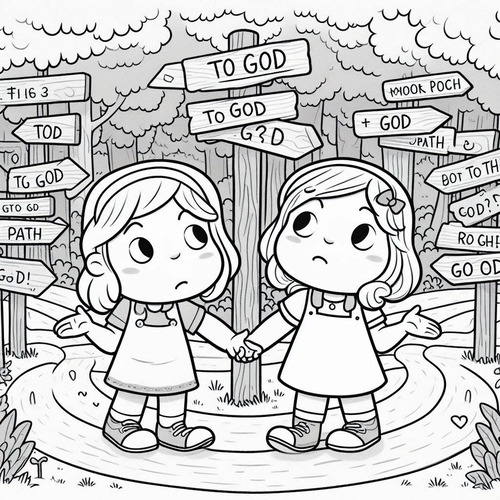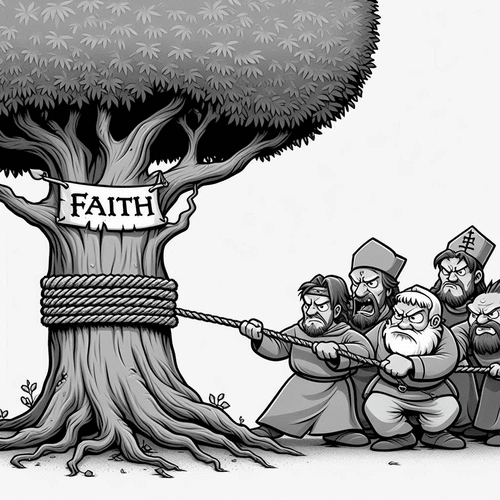Christian Science: Key Differences with Bible Doctrine
Christian Science is a religious movement that arose in the late 19th century in New England, founded by Mary Baker Eddy. While including some biblical terminology, Christian Science teachings depart significantly from mainstream, orthodox Christian doctrine as derived from scripture.
Origins and Founder: Mary Baker Eddy (1821-1910) founded Christian Science after claiming to experience a healing from severe injuries in 1866. She attributed the healing to a spiritual insight. In 1875 she published her key work, Science and Health with Key to the Scriptures, outlining her beliefs. The first Christian Science church was established in 1879 in Boston.
Core Teachings and Beliefs
- View of God: Christian Scientists believe in one, infinite divine Mind or Principle rather than a personal, triune God. God is synonymous with Life, Truth, Love, Spirit, Soul, etc.
- View of Jesus: Jesus is seen as a spiritual teacher and highest human concept of the divine Mind, but not the unique Son of God. His material death and bodily resurrection are denied.
- View of Sin and Salvation: Sin, evil and suffering are considered illusions or mistaken beliefs rather than reality. Salvation is attained through denial of material existence and affirmation of spiritual perfection.
- Rejection of the Material World: Christian Science teaches that the material universe, including the human body, is a mistaken perception by finite minds. Only the spiritual is truly real.
- View of Scripture: The Bible is viewed as allegorical rather than a historical record. Eddy’s writings in Science and Health are considered inspired and more authoritative than scripture.
Key Differences from Biblical Christianity
- Denial of the Trinity: Christian Science denies the doctrine of the Trinity—that teaches God is one Being, but exists eternally in three co-equal, co-eternal Persons—the Father, Son, and Holy Spirit.
- Rejection of the full deity and bodily incarnation of Jesus: It rejects the full deity and bodily incarnation of Christ, who according to biblical teaching is the eternal Son of God who took on human flesh.
- Denial of Jesus’ physical, bodily death and resurrection: Christian Science rejects the biblical account that Jesus physically suffered and died on the cross. It claims Jesus did not actually have a physical, material body that could experience death. His physical form is seen more as a mental perception than reality.
- Rejection of sin as a reality needing atonement through Christ’s sacrifice. Eddy rejected the biblical teaching that sin is a reality in dire need of atonement and faith in the sacrificial death of Jesus Christ on the cross is the only means of atonement.
- View of the material world, including our bodies, as unreal illusions. The material world, including our physical human bodies, is an unreal illusion, Eddy taught, rather than an actual creation of God.
- Eddy’s writings supersede the Bible: Ultimately, the writings of Mary Baker Eddy in Science and Health with Key to the Scriptures take precedence over the Bible as the authoritative truth, contrary to the Protestant Christian view of the Bible as God’s infallible, inerrant Word.
While using some biblical terminology, key Christian Science teachings effectively deny core doctrines of historical Christianity derived from scripture – the nature of God, the person and work of Jesus Christ, the reality of sin, and the truth of Jesus’ bodily resurrection. These fundamental differences place Christian Science outside the boundaries of biblical, orthodox Christianity despite some shared terminology.
An evaluation of Christian Science’s key beliefs reveals these do not align with the historic biblical gospel as understood by believers through the centuries. While well-intentioned, Christian Science represents a modernist departure from the central tenets of the historic Christian faith.
Related Reads
Editor's Pick

Why Do People Hate the Doctrine of Election?
…WHEN THEY REALLY SHOULDN’T Few Bible doctrines provoke stronger reactions than election. The idea that God chose some for salvation [...]

The Doctrine of Providence: Does God Really Govern All Things?
You’re sitting in the doctor’s office when the diagnosis lands like a thunderclap. Your mind races: Why this? Why now? [...]

No Decay, No Defeat: What It Means That Christ’s Body Saw No Corruption
On the Day of Pentecost, Peter stood before thousands and made a startling claim: David's body decayed in the tomb, [...]
SUPPORT US:
Feel the Holy Spirit's gentle nudge to partner with us?
Donate Online:
Account Name: TRUTHS TO DIE FOR FOUNDATION
Account Number: 10243565459
Bank IFSC: IDFB0043391
Bank Name: IDFC FIRST BANK






